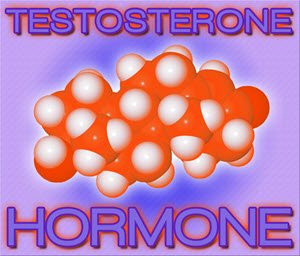Reading Time: 2 minutesIntroduction to Secondary Hypogonadism Secondary hypogonadism, also known as hypogonadotropic hypogonadism, is a condition where the body does not produce enough testosterone due to a problem with the pituitary gland or hypothalamus. These areas of the brain are responsible for signaling the testes to produce testosterone. In American males, secondary hypogonadism can lead to a range of symptoms including decreased libido, erectile dysfunction, fatigue, and mood changes. Understanding and addressing this condition is crucial for maintaining men's health and quality of life. Diagnosis and Initial Assessment The journey towards managing secondary hypogonadism begins with a thorough diagnosis. American males experiencing … Read more
- About Escitalopram (139)
- Androderm Testosterone Transdermal Patch (125)
- Androgel Gel Formula (125)
- Andropause (184)
- Andropause Medical Research (126)
- Aveed Endo Pharmaceuticals Injectables (125)
- Blog Testosterone (3)
- Boosting Low Libido (139)
- Diets (31)
- Drugs (9)
- Endocrinology Men's Therapy (133)
- Endocrinology Scientific Research (126)
- Erectile Dysfunction Medicine (146)
- Fitness Training (139)
- Fortesta Transdermal Medicine (125)
- Genotropin HGH (135)
- Hair Loss Causes (139)
- Hcg Injections (4)
- Hormone News (41)
- Hormone Therapy Review (54)
- How To Inject Hormones (2)
- Hrt Fitness And Exercise (5)
- Human Growth Hormone (19)
- Human Growth Hormone Clinic (2)
- Human Growth Hormone Medication (145)
- Humatrope HGH (134)
- Hypogonadism Management (249)
- Hypopituitarism Management (134)
- Impotence Management (145)
- Injectable Delatestryl Endo Pharmaceuticals (125)
- Injectable Depo Testosterone Pfizer (125)
- Ipamorelin Research (145)
- Is It Low T (16)
- Jatenzo Oral Medicine (124)
- Kyzatrex Oral Pills (124)
- Labcorp Blood Testing Centers (1,809)
- Late-onset Hypogonadism Medical Science (126)
- Low Testosterone (242)
- Low Testosterone Medical Science (126)
- Male Fertility (7)
- Male Health (2)
- Male Sexual (3)
- Men's Health (15)
- Men's Health Medical Research (123)
- Natesto Gel Testosterone (125)
- Norditropin HGH (134)
- Nutropin HGH (134)
- Omnitrope HGH (134)
- Online Pharmacy (1)
- PDE5 Inhibitors And ED Treatment (144)
- Penis Health (127)
- Penis Shrinkage Causes (145)
- Premature Ejaculation Solutions (145)
- Primary Hypogonadism Scientific Research (126)
- Prostate Health Research (126)
- Quest Blood Testing Centers (1,325)
- Saizen HGH (134)
- Scientific Breakthroughs In Peptides (139)
- Secondary Hypogonadism Medical Science (126)
- Semaglutide Treatments (144)
- Sermorelin Therapy Highlights (145)
- Serostim HGH (134)
- Sexual Dysfunction Causes (134)
- Soft Erection Research (145)
- Sports Medicine Science (126)
- Stendra Avanafil Therapy (145)
- Striant Testosterone Buccal System (124)
- Tamoxifen Therapy Insights (138)
- Testical Science Medical Research (126)
- Testim Transdermal Gel (125)
- Testosterone And Cancer (2)
- Testosterone Clinics (408)
- Testosterone Cream (37)
- Testosterone Cypionate (66)
- Testosterone Cypionate Research (126)
- Testosterone Deficiency Syndrome Research (126)
- Testosterone Enanthate Medical Research (126)
- Testosterone Gel (96)
- Testosterone Information (1,294)
- Testosterone Injections (54)
- Testosterone News (34)
- Testosterone Propionate Medical Science (126)
- Testosterone Replacement For Men (6)
- Testosterone Replacement Therapy (149)
- Testosterone Replacement Therapy Medical Science (126)
- Testosterone Therapy (12)
- Testosterone Undecanoate Research (126)
- Testsoterone Androgen Hormones (145)
- Tlando Oral Tablets (120)
- Urology Insights For Men (133)
- Urology Medical Science (126)
- Viagra For Erectile Dysfunction (145)
- Vogelxo Transdermal Gel (125)
- Chronic Fatigue’s Impact on Soft Erections in American Men: Mechanisms and Management
- Jatenzo’s Impact on Thyroid Function in American Males: A Comprehensive Review
- LOH and Sarcopenia: Impacts on Muscle Strength in Aging American Men
- Urological Advances Enhancing Ureteral Stone Management in American Men: A Review
- MEN Syndromes in American Men: Diagnosis, Treatment, and Emerging Therapies
Free Testosterone Consultation
Our Staff
* U.S. Citizens 30 Years of Age of Older Only*
Testosterone Products
HRT Health Categories
Testosterone Fit And Healthy
Recent Posts
Therapy Benefits
Testosterone Molecules For Health Solutions
Five Surprising Testosterone Benefits:
HGH Specialists In Testosterone Therapy
Call Us Today
Medical Forms
Testosterone Therapy
Medical Excellence
Testosterone Decline

















